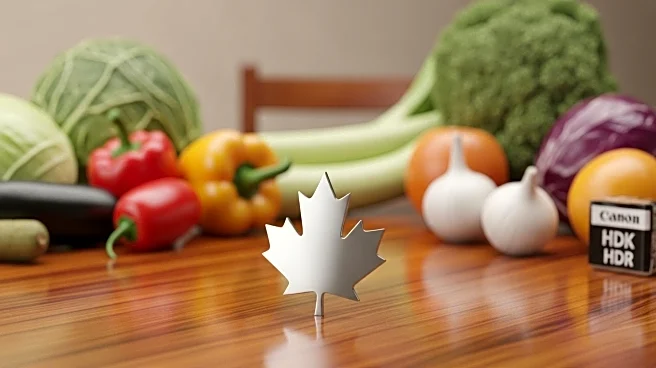What's Happening?
A Canadian watchdog has identified 45 supermarkets engaging in 'maple washing,' a practice where American produce is mislabeled as Canadian to avoid trade war backlash. Despite the discovery, no penalties were imposed, leading to public outrage. Canadian consumers, eager to boycott American goods, were misled by labels featuring Canadian symbols on US products. The issue has sparked debate over labeling practices and consumer rights, with many Canadians expressing frustration over the lack of consequences for the supermarkets involved.
Why It's Important?
The 'maple washing' incident highlights ongoing trade tensions between Canada and the US, affecting consumer trust and market dynamics. The lack of penalties raises concerns about regulatory enforcement and the integrity of labeling practices. This situation could impact cross-border trade relations and consumer behavior, as Canadians may become more vigilant in scrutinizing product origins. The controversy underscores the need for transparent labeling and accountability in the food industry, potentially influencing future policy decisions.
What's Next?
The Canadian Food Inspection Agency may face pressure to strengthen enforcement and penalties for misleading labeling practices. Consumer advocacy groups could push for legal action or policy changes to protect shoppers from deceptive marketing. The incident may lead to increased scrutiny of labeling practices in other industries, prompting broader regulatory reforms. As trade tensions continue, both Canadian and US stakeholders may seek diplomatic solutions to address underlying issues and restore consumer confidence.










